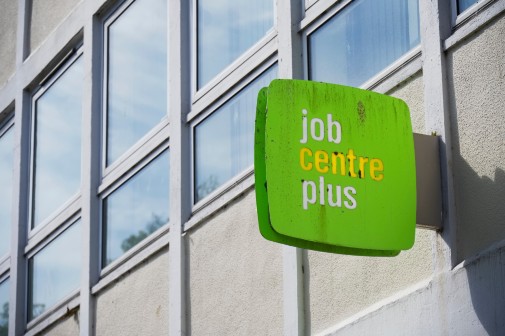Report calls for urgent changes to social security system to “lift one million from poverty overnight”
Posted on 21 February 2024
 The report highlights flaws within the current system, which the authors say are holding people back from escaping poverty and getting on in work.
The report highlights flaws within the current system, which the authors say are holding people back from escaping poverty and getting on in work.
The new report from the think tank Institute for Public Policy Research (IPPR) and Changing Realities – a research project looking at the experiences of families living on a low income led by Professor Ruth Patrick from the University of York – concludes with a package of reforms to cut poverty, incentivise work and deliver “quick wins” to create a modern social security system.
The reforms suggested in the report include:
- Increasing the core entitlement for all households on Universal Credit by £50 a month, with an equivalent for those on legacy benefits. This alone would lift 350,000 people out of poverty.
- Removing the two-child limit and benefit cap, to tackle child poverty and restore the link between entitlement and need.
- Introduce a second-earner work allowance and reduce the taper rate (the amount of Universal Credit withdrawn for every pound someone earns) to 54 per cent (towards a goal of 50 per cent over the next parliament), to support parents, tackle the gender pay gap and improve work incentives so that work always pays.
- Tackling the five-week wait by introducing two weeks of backdating for new claims, to reduce claimant debt in the system, with additional reforms to how debt is collected.
Together, the first three measures would lift an estimated one million people from poverty, according to IPPR’s analysis, at a cost of around £12 billion, while boosting economic activity and with it bringing extra growth to the UK economy.
Failing
Professor Ruth Patrick, from the University of York’s School for Business and Society and co-author of the report, said: “Our social security system is failing against its own objectives. Rather than protecting people from poverty, and supporting people to enter and progress in work, it punishes those it is supposed to support, and - by its very design - entrenches poverty and insecurity.
“The government must act fast to address this, and our costed proposals, developed in partnership with people with lived experiences of social security, would be a very good place to start.”
The report highlights a series of previously unreported flaws with the current system, which the authors say are holding people back from escaping poverty and getting on in work.
For example, Even when Local Housing Allowance is unfrozen, research estimates over 800,000 households on Universal Credit who rent privately will continue to face a shortfall between their rent and housing support. According to the report, some households are put off work due to a combined tax-benefit withdrawal rate of 69 per cent because of the way Universal Credit taper rates and work allowances work alongside national insurance and income tax.
The report also highlights groups most at risk of being pushed into poverty. For example a single adult out of work and under 25 on Universal Credit faces an 18 per cent real terms cut to their income for day-to-day living costs, due to the sudden end of the emergency cost of living payments.
Shambles
Henry Parkes, IPPR principal economist, and an author of the report, said: “Universal Credit was supposed to make work pay. However, the shambles of administration that has been overseen by nine DWP ministers in 14 years has led to a threadbare system that neither prevents poverty nor supports people into meaningful work.
“This package of reforms, all potentially quick wins for any government, would create a social security system fit for the 21st century.”
Caroline, a Changing Realities participant, said: “Sanctions, the five-week wait, an ‘any job will do’ approach and a sense of being ‘on my own’ with work coaches merely doing a job and not providing personalised support. How can we make people’s lives better if children, disabled people, and families feel they are being punished?
“We need to listen to people, give them a hand up and the ability to see a way out. The ideas set out in this report could be the change we need to make that happen.”
Explore more news

Researchers use robotics to find potential new antibiotic among hundreds of metal complexes
Tuesday 23 December 2025

Text messages could be key to helping TB patients quit smoking, according to study
Monday 22 December 2025

Teenage niece may have shaped Jane Austen’s Persuasion, new study suggests
Monday 22 December 2025

Project to examine how AI is changing the way science is done
Wednesday 17 December 2025

Researcher leads global push to cut tobacco harms in people with mental ill health
Monday 15 December 2025
Media enquiries
About this research
Snakes and Ladders: Tackling precarity in social security and employment support by Henry Parkes, Mel Wilkes, Ruth Patrick, Uisce Jordan, David Young and Jim Kaufman, is available via www.ippr.org/articles/snakes-and-ladders
Changing Realities is a collaboration between parents and carers on a low-income, researchers at the University of York and Salford University and Child Poverty Action Group.
